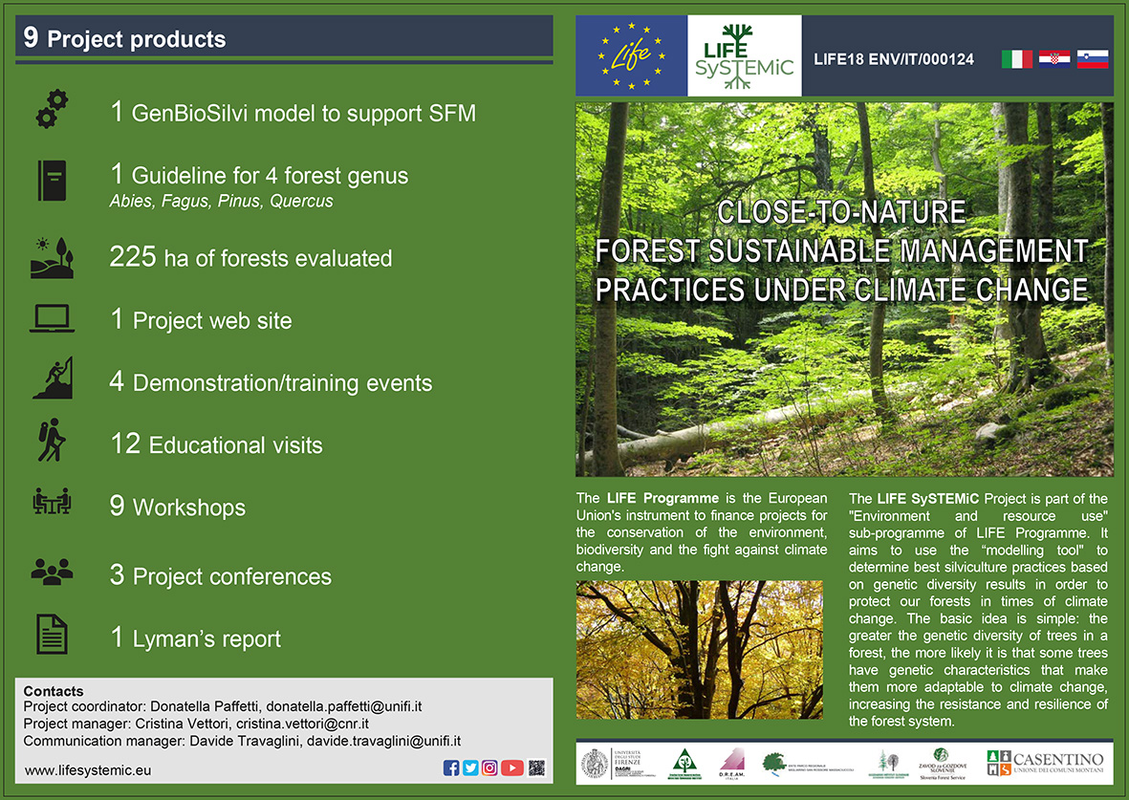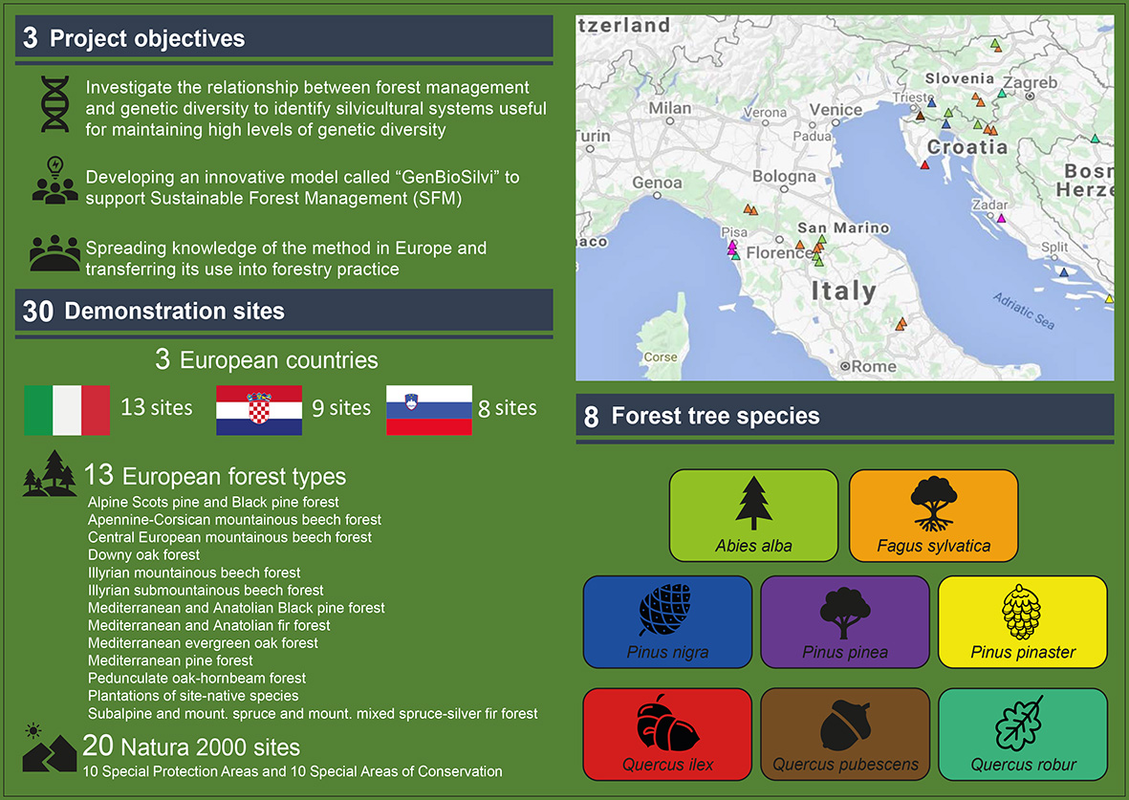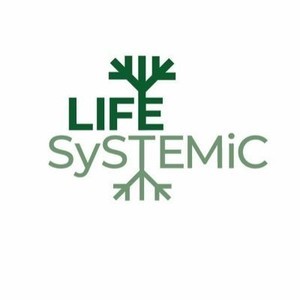The influence of climate change on forest systems is acknowledged worldwide and its effects are visible on European forests. In the Mediterranean area, rising temperatures and the increased frequency of extreme events such as wind storms, heat waves and prolonged dry periods pose a threat to forest ecosystems and new challenges for Sustainable Forest Management (SFM).
It is also acknowledged that genetic diversity helps forests to cope with climate change and other threats. Indeed, genetic resources are the basis of the long-term evolutionary processes maintaining the adaptive potential of forests to environmental changes.
The aim of the LIFE SySTEMiC project (Close-to-nature foreSt SusTainablE Management under Climate Changes) is to use the “tool” of genetic diversity to protect our forests against climate changes. The basic idea is relatively simple: the higher the genetic diversity of the trees in a forest, the more likely it is that some trees will have genetic characteristics that make them more adaptable to climate change, thereby increasing the resistance and the resilience of the forest system.
Based on these premises, the main project objectives are to:
- Investigate the relationships between forest management and genetic diversity for eight forest tree species in three European Countries (Croatia, Italy, Slovenia) in order to identify the silvicultural systems that maintain high levels of genetic diversity.
- Develop an innovative Genetic Biodiversity and Silvicultural model (GenBioSilvi) based on the combination of advanced landscape genomics, applied genetics, and silvicultural models to support SFM.
- Spread the knowledge of the method across Europe and to transfer its use in forestry practice by involving different types of stakeholders.
Forest owners, forest managers, national, regional, and local forest offices, academic and research institutions, forest certification schemes, and all institutions and organizations involved in forest protection and biodiversity conservation are the main beneficiaries of the GenBioSilvi tool.
The LIFE SySTEMiC project has a five years duration. The project has started on 1st September 2019 and will end on 31st August 2024.



